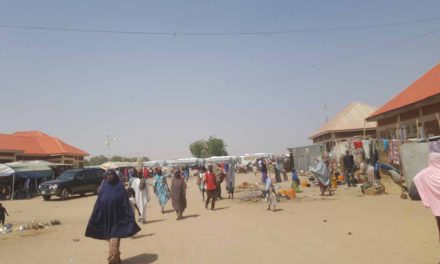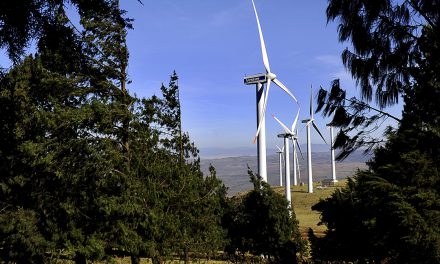This special edition of Africa in Fact provides perspectives on wide-ranging Africa-US intersections. The authors were part of the many virtual sessions convened throughout 2020 as webinars became a media platform of choice for a world blasted by a pandemic like no other. The objective is not to merely reflect on what went down but more importantly, how Africa should approach the reigning superpower.
The edition takes a “general to the specific” structure, from broad policy offerings to specific sectors, issues, and dynamics of engagement. Bob Wekesa sets off the discussion by framing the overarching contours of what a coherent policy framework for the recalibration of Africa-US relations would look like. He argues that such a framework needs continental, regional and national approaches across political, economic, and cultural issues.
The late Francis Kornegay rethinks Africa-US policy from an African American perspective, noting the unprecedented appointments and occupancy of African American leaders such Linda Thomas-Greenfield, Gregory Meeks, Karen Bass and Barbara Lee, of key legislative and executive US foreign policy installations. He argues for a confluence of the administration’s ranking African Americans with their academia and civil society counterparts in reconceptualising Africa-US relations, to put these on a more productive path. Favouring a pan-African over a bilateral approach, he argues for the prioritisation of the African Continental Free Trade Area (AfCFTA) and the African Growth and Opportunity Act (AGOA) as a geostrategic route to Africa’s long-sought-after-integration. Kornegay finds that the Trump administration viewed Africa through extra-African interests, particularly pro-Israeli lenses, among others – and urges a drastic reversal in which Africa should be engaged with on its own terms.
In advocating a new vision for Africa-US relations, Arsène Brice Bado’s article begins from the optimistic premise that Africa is an opportunity, not a problem. In this scheme of things, the US should privilege developmental partnership over charity. Reviewing Africa’s relations in the international system over time, Bado argues that the independence era in the 1960s through the Cold War was a period of strategic importance, followed by a brief interlude of loss of importance after the end of the Cold War and an upswing in the new millennium. The article argues that the US has lost attractiveness on the continent, in part due to the securitisation of relations and neglect of human rights and democracy imperatives, with aid used as a tool for fighting terrorism. This, for Bado, is the source of the “problem” blinkers through which the US views Africa, a policy that the Biden administration should abandon and revert to a developmental partnership policy.
Sanusha Naidu’s article weighs Africa’s bilateral and multilateral approaches towards the US, and inclines towards the former as a strategy towards the latter. It begins by dissuading American policymakers from strategising to return to Africa as a means of shoring up its waning influence vis a vis the main geopolitical competitor, China. Citing data, the article propounds the bilateral avenue towards Africa-US multilateralism by pointing out that economic exchanges at the continental level are very low. Anchor countries – South Africa, Rwanda, Ghana, Kenya, Nigeria, Morocco, Egypt, and Ethiopia – could serve as strategic arteries towards boosting trade in the five African regions, with big policy frameworks such as AfCFTA and AGOA leveraged, consultatively.
Philani Mthembu drills down to the implications of the Biden administration’s foreign policy for South Africa, Africa, and the world. The article begins with the sobering recognition of the difficulties the Biden administration will have in reversing Trump-era policies and actions – relocation of the US embassy to Jerusalem, tense relations with China, frayed relations with Europe, support for Morocco over Western Sahara, an anti-multilateralism stance and domestic challenges, including extremism and racial tensions. In this context, the article calls for the lowering of runaway expectations by African nations about a quick reset of relations. Mthembu offers suggestions for South African and African officials: familiarise themselves with key Biden personnel and lay out a personal outreach to them; decide on concrete programmes (particularly the intersection of AfCFTA and AGOA) over lofty policies; and prioritise triangular continental projects with the support of entities such as USAID.
Beginning from the viewpoint that relations between Africa have been asymmetrical, Siviwe Rikhotso advocates African agency as the panacea in a bid to balance relations. The article’s rationale for agency on the part of Africa is that foreign policy and diplomatic ambitions towards the US would assure access to global economic goods. To further justify African agency, the article synthesises the US foreign policy towards Africa, finding that, over the past three decades, the focus has been on military and foreign aid mingled with instances of ignorance about the continent as distinguishing features. Continentally, he points out that the AfCFTA is a clear example of African agency in economic and trade spheres, and argues that an Afrocentric policy framework is important because the Biden administration would not be too constrained by domestic imperatives to think for Africa. African agency would have to be forged in a take and give compromise between competing national interests with alignment as the imperative.
Charles Prempeh approaches the African agency debate from a human rights angle, with specific reference to lesbian, gay, bisexual, transgender, intersex and queer (LGBTIQ) issues. With evidence from several African countries, the article analyses pro- and anti-LGBTIQ debates, with the former drawing their justification from western-inclined right-of-choice principles, while the latter invoke the ostensible un-African-ness of the practice. The American context is that, early in his presidency, Joe Biden issued statements supportive of LGBTIQ communities who had suffered reversals during the Trump administration, such as the drying up of aid to support their advocacy for recognition. Prempeh argues that the Biden administration should rather let the acceptance of homosexuality evolve over time in Africa, as happened in the West, rather than tying the issue to American aid.
Gilbert M. Khadiagala’s focus on Africa-US security relations begins with a strong motivation for the need for openness and transparency, as security-related cooperation has hitherto been shrouded in secrecy and opaqueness on both sides. He notes the three areas in which Africa-US security is beneficial to Africa as: secure African societies as foundations of prosperity; lack of resources to meet security budgets as a motivation for US assistance; and the emergence of new and sophisticated threats such as terrorism where African incapacities require US support. Filled with rich historical narrations covering various conflict spots on the continent, the article captures various capacity building initiatives that African military installations have benefited from, including the initially controversial Africa Command (AFRICOM). Crucially, Khadiagala links the proclivity towards military assistance – particularly with a focus on counterterrorism – as having subverted a focus on democracy, with many autocratic regimes on the continent receiving military support despite their questionable human rights records.
Temesgen Tesfamariam trains his focus on the Horn of Africa region with regard to violent extremism. Finding that Ethiopia was favoured by US policy in the region, the article argues that this led to less than desirable consequences such as popular uprisings, endless border disagreements between Eritrea and Ethiopia, and a prolonged civil war in Somalia. After providing some compelling examples to back his claim, Tesfamariam goes on to offer recommendations on how the Biden administration could rework its relations in the region. One startling proposal is that terrorism has not been a fundamental threat to US interests in the region, although it has been a key motivator for US ostensible favouring Ethiopia. To undo this apparently wrong-headed premise, he proposes America’s involvement in conflict resolution (particularly between Ethiopia and Eritrea), not as a response to terrorism but as an approach to state-building.
Describing the 2020 US elections as a meltdown, Gideon Hlamalani Chitanga argues that developments in the US might have an impact on creating a new democracy-building and promotion approach towards Africa. This would be in the form of a shift in focus from methods of regime change to fostering democratic institutions. Arguing that America’s democratic credentials were shaken to their core during the elections and even before then, he argues that an approach towards creating resilient institutions in Africa would be far better seeing off undemocratic regimes. Among the points that he raises is that regime changes with US complicity or active involvement have led to conflicts that have lasted for years.
Amini Kajunju and Mohamed Keita bring a youth development perspective to the discussion. The motivation for a focus on youth and development in Africa-US relations is the African youth bulge, which can be a boon or a bane for the continent and the world. Drawing on youth-related data across Africa, the article argues that African youth are susceptible to many activities that would be inimical to the continent. Indeed, Kajunju and Keita point out that African youth are already falling prey to recruitment by terrorist networks due to unemployment. Apart from places such as Cape Town, Lagos, Johannesburg and Nairobi, African youth are missing out on the digital economy due to a debilitating digital divide. Rather than merely rail against the challenges, the authors provide some interesting proposals centred on mining African youth as the continent’s human capital. These include enhancing the quality of education so that African youth can find their way in the job market or be self-employed, an infusion of technology into every aspect of the education system, and improvement in vocational and technical education.
Philani Moyo directs his thoughts towards the contours and opportunities available in the environment and climate action sphere. Starting with a recollection of Trump’s climate denialism and the reversal of gains made under the Obama administration, the article reaffirms the devastating effects of the US withdrawal from the Paris Agreement in 2017. The article provides pertinent arguments to uphold the fact that US policies and actions on climate are consequential to Africa. Moyo entertains optimism that the Biden administration would be more climate-friendly based on domestic and international actions that the new president took upon inauguration. The article offers several proposals for Africa-US partnership, key among them the need for America to honour its obligations to the continent under the UN Framework Convention on Climate Change.
This special issue concludes with Job Allan Wefwafwa’s refreshing article on the place of social media in Africa-US relations. Key to the article is the similarities between Africa and the US with regards to social media, most of the platforms being American innovations. Wefwafwa takes stock of the fact that social media platforms such as WhatsApp were the major sources of viral news during the 2020 US elections. Equally, he notes the popularisation of American politics by Donald Trump via Twitter. After providing examples of African leaders attempting to muzzle social media, he links their undemocratic proclivities to Trump’s fear-mongering and spread of pseudo truths as a political strategy. An aspect of Africa-US relations in the digital sphere that he finds problematic is insidious commercialisation, often to the detriment of African audiences.
Sadly, Francis Kornegay, one of our contributors to this issue of AIF, and a long-standing intellectual in the fields of foreign policy, geopolitics and global Africa, passed on during the course of production.
This edition is a rich kaleidoscope on Africa-US relations and we hope readers will have a good read!
Dr Bob Wekesa is acting director and research and communications coordinator at the African Centre for the Study of the United States based at the University of the Witwatersrand, South Africa. He holds a Bachelor’s degree from the University of Nairobi and Master’s and doctoral degrees from the Communication University of China, Beijing. His area of teaching, research and public engagement is the intersection of journalism, media, and communications on the one hand and geopolitics, diplomacy and foreign policy on the other. He supervises post-graduate projects in these fields. His current research work includes international communication; diplomacy with a focus digital and public diplomacy; African diaspora; the internationalisation of African cities; the geopolitics of Africa and established and emerging powers. Prof Wekesa is well published in academic and popular platforms.













